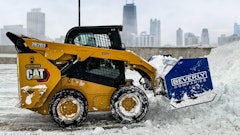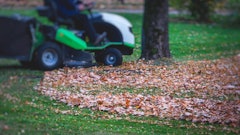
Demand for home improvement and lawn care services have spiked as a result of the coronavirus pandemic and according to a recent report, landscapers specifically saw a nearly 46% increase. And while demand shows no sign of slowing down, especially as we near the start of lawn care season in February and March, a primary conversation driver is how business owners within this industry are prepared to scale and grow.
While growth may be the case for a number of these companies, it’s not necessarily the future of every lawn care business. In fact, more so than perhaps most other industries, lawn care is primed for market consolidation.
Most Businesses In The Space See Return Customers
There is a longstanding misconception that lawn care maintenance should only take place in spring. Ensuring a healthy, green lawn beyond just the spring and summer months requires consistent maintenance and essential services — such as aeration and overseeding — timed throughout the course of the year, every year.
As such, lawn care businesses have repeat customers annually, as well as multiple touchpoints and opportunities to upsell customers throughout the year during servicing. This built-in, annualized audience is attractive to potential acquirers because of the high potential for not just customer acquisition, but also retention and recurring revenue.
Essential Businesses Always Have A Flow Of Customers
According to a new study, 75% of homeowners said their outdoor space was indispensable during the coronavirus pandemic. And with more Americans spending time working, parenting, and learning from home than ever before, they are prioritizing improving their homes, and putting funds behind those improvements, relying on home service vendors to complete these projects. In fact, the same study found that more than 50% of Americans invested in their outdoor spaces this past year and spent more than $1,900 on improvements.
With a greater focus on home improvements, coupled with the ongoing maintenance required by homeowners, businesses experienced a slew of return customers who not only wanted services, but needed them.
Aging Ownership Across The Industry Is Looking For An Exit Strategy
According to recent data, nearly 60% of small businesses lack succession plans. As older generations look for an exit strategy, there are fewer people available to not only do the job but take over the business. Reports indicate there has been a steady decline in people willing or wanting to work in a skilled labor profession for years, well before the current labor shortage.
Despite the soaring demand across home services industries, as well as increased wages to incentivize applicants, there is still a gap between business demand and eager workers that stems from a generational gap in education.
Millennials and Gen Z didn’t necessarily grow up with the same trade programs early in their academic career as older generations and were instead encouraged to pursue higher education and find a job in professional industry.
Without much buy-in from younger generations to own a lawn service company as leadership ages out of the industry, consolidation by a like-minded business may be one of the only remaining profitable options.
The pandemic has highlighted lawn care businesses as a worthy investment. Whether your company is being acquired or are doing the acquiring, owners must understand that either decision will likely result in a business shift that is meaningful for their specific trajectory. And given that home service businesses – and lawn care companies in particular – are in high demand by consumers with no sign of slowing down in the near future, now is the time to decide if you’re considering either of these paths.



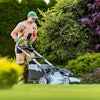

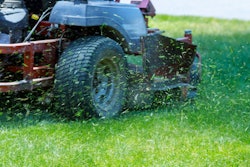
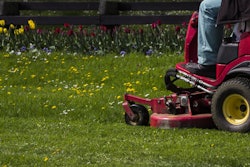






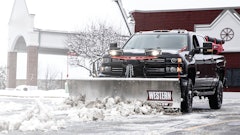


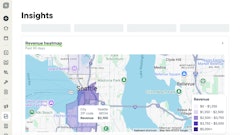
![Gravely Pro Turn Mach One My23 Dsc03139 Edit 1200x800 5b2df79[1]](https://img.greenindustrypros.com/mindful/acbm/workspaces/default/uploads/2025/10/gravely-pro-turn-mach-one-my23-dsc03139-edit-1200x800-5b2df791.BucBnDoN22.jpg?ar=16%3A9&auto=format%2Ccompress&fit=crop&h=135&q=70&w=240)
